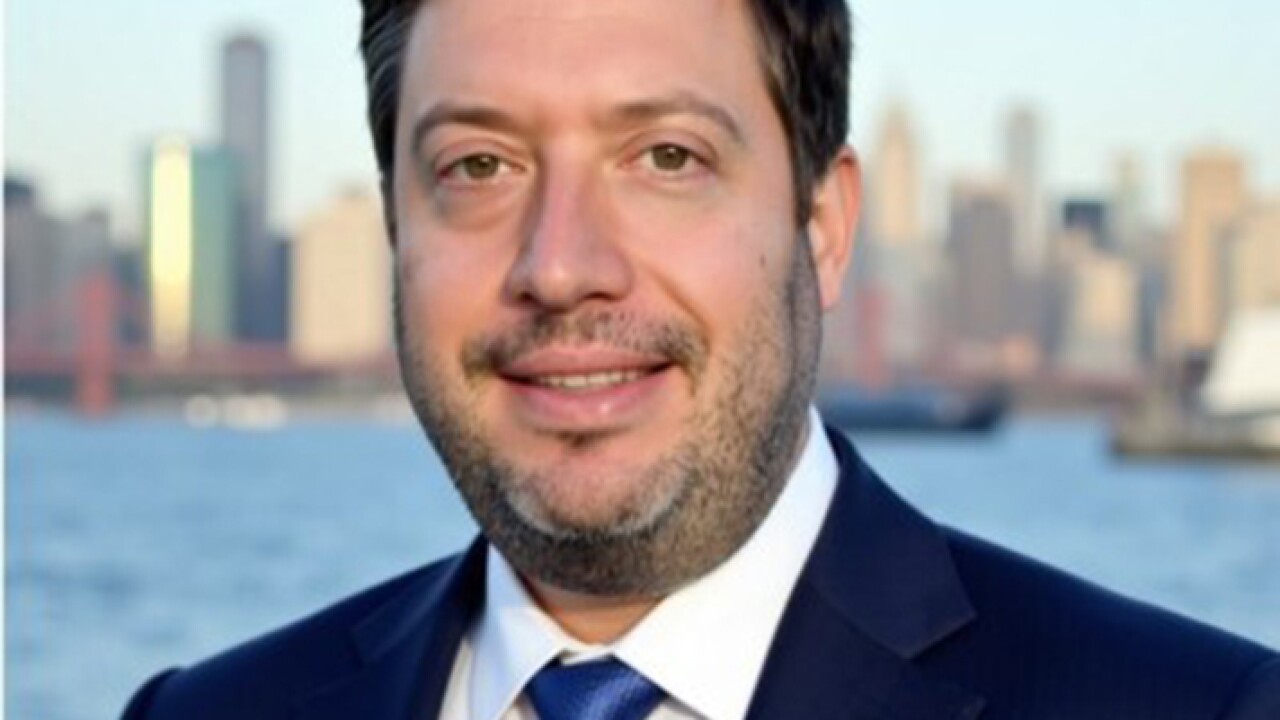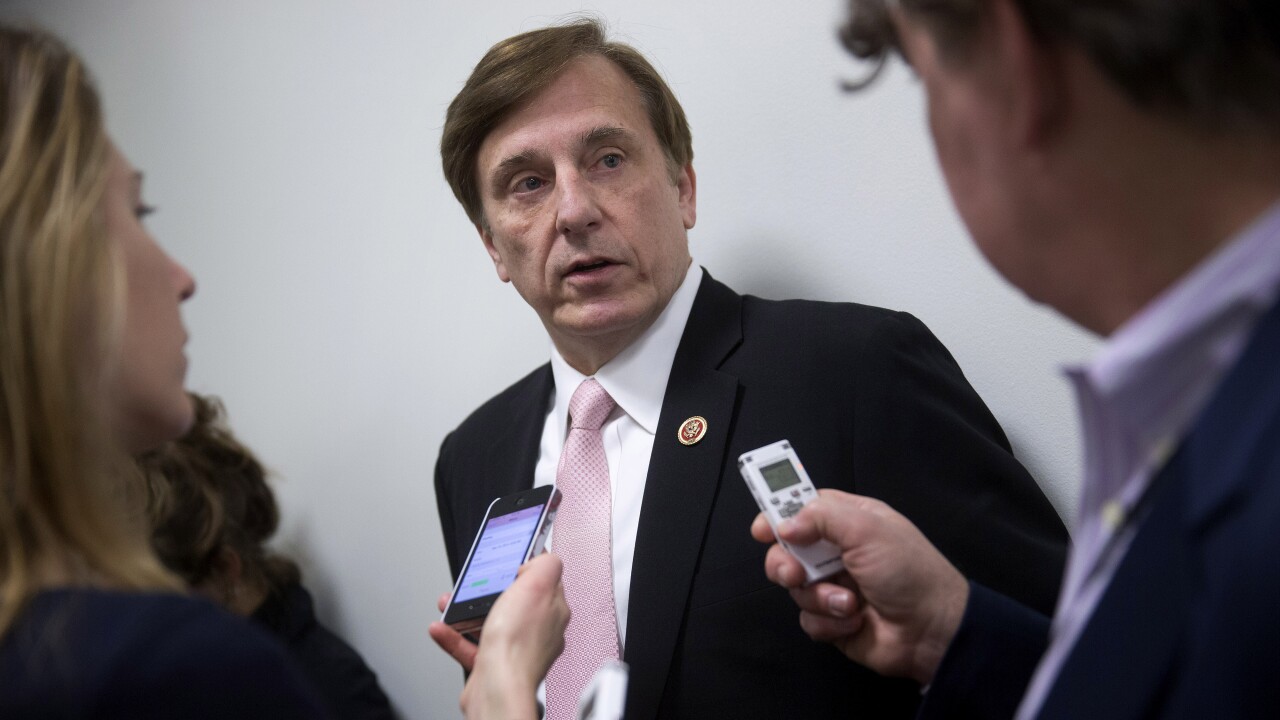Wayne County, Mich., is partnering with the state government to lower the borrowing costs for its long awaited jail project financing once it resolves a lawsuit that has stalled the deal.
The county believes it will achieve the best interest rates by structuring the $315 million of bonds with a state intercept and issuing them through the Michigan Finance Authority. The MFA state intercept has been used by cities, villages and schools but never by a county, said John Barton, director of the authority's finance division.

Under the state intercept the county gives irrevocable rights to the treasurer to pay to the trustee the county's share of distributable state aid revenue sharing to satisfy the debt obligations.
“That gives a tremendous amount of security to the bondholders,” Barton said.
The county has overcome a series of obstacles to get to market with the long-stalled project, including the need for Internal Revenue Service clearance.
The county had planned to release an offering statement on Monday with investor meetings this week and the pricing on the week of July 30th, but a lawsuit filed by a public interest group has put the marketing and sale of the bonds on standby.
Goldman Sachs is the senior manager. The co-senior manager is Siebert Cisneros Shank. Bank of America Merrill Lynch is co-manager.
The county is scheduled in court on Wednesday. County Chief Financial Officer Henry Dachowitz said he is hopeful the federal lawsuit filed in the U.S. District Court for the Eastern District of Michigan will be dismissed.
“This changes all of the timing; all we are doing is putting the marketing and sale on standby and waiting for lawyers to do their thing and wait for courts to make their decision,” Dachowitz said.
The lawsuit, filed by the Detroit Justice Center on behalf of three Wayne County registered voters, includes a motion for a temporary restraining order.
The group is challenging the manner in which the county published its notice of intent, a procedural requirement to issue bonds in Michigan.
It claims the county didn’t give proper notice and deprived the plaintiffs of their ability to collect signatures for a referendum that would have allowed citizens to vote on the bond issuance. Some Wayne County residents have long voiced concerns about the proposed new jail. The Justice Center says the bond money should be used to improve schools, job training, neighborhoods and to reduce crime.
“The law requires voter input for a reason,” said Eric Williams, a staff attorney at the Detroit Justice Center. “The people of Wayne County have a right to weigh in before saddling future generations with debt and, in this case, more jails. If this right is trampled on, then decisions are made with little connection or input from the people most impacted by them.”
The county maintains that it met all the requirements in its notice of intent to issue the bonds published in The Detroit News and Detroit Free Press on April 17 providing the required 45 days needed to submit a petition for referendum from the day the notice is published.
Dachowitz said that the county doesn’t want the pending litigation to serve as a distraction during the marketing and sale process.
“Once the matter is resolved the county plans to post the POS and begin marketing the bonds,” he said. “The market is strong, so right now we expect no negative impact but obviously if it drags on, anything is possible.”
Moody’s Investors Service has assigned an Aa3 rating to the state’s intercept program.
Moody’s analyst Andrew Van Dyck Dobos said the structure of the Wayne County DSA bonds is similar to the structure of Detroit’s distributable state aid bonds, which were not impaired during the city’s Chapter 9 bankruptcy.
“The key to bondholder protections is the direct intercept of distributable state aid from the state treasurer to a third-party trustee, who will service the debt,” Dobos said.
“This arrangement significantly limits misappropriation of funds by Wayne County, protecting bondholders from shifting budgetary and political priorities,” Dobos said.
“As these bonds hit the market, we think investor interest is going to be high, with the distributable state aid pledge as the primary source of security coupled with the improving county credit profile,” Dachowitz said. “This should translate to better financing at rates that would have been unattainable under the previous administration.”
The county also has its own improved credit story to tell with five ratings upgrades in five months and a restoration of its investment grade ratings. Buyside analysts say the county could have likely accessed the market on its underlying credit, albeit at a greater cost.
In June, Moody’s raised the county’s rating to Baa2 from Ba1. The outlook is stable. S&P Global Ratings upgraded the county's rating to BBB-plus from BBB-minus.
“In the current yield-starved market, Wayne County would very likely be able to get the deal done without the DSA enhancement, but it would have come at a cost,” said Tom Schuette a partner at Gurtin Municipal Bond Management.
Howard Cure, director of municipal bond credit research for Evercore Wealth Management, said that many states have programs like the MFA’s intercept program that provide an added level of security even though the underlying entities would have market access.
“This mechanism of permitting the intercept of state revenue and an additional bonds test limiting the overleveraging for this program provides added, stronger security from a relatively stable state and results in lower interest rates for the county,” said Cure.
Dachowitz said that since 2015 the county has received roughly $51 million annual of distributable state aid. With the bond transaction the county is looking at a debt service amount in the range of $16 million to $19 million per year. “We feel very confident that we have the funds to pay back the bondholders and that is why we get such a good credit rating,” Dachowitz said.
The Wayne County bonds would be the only county debt issued under the intercept program, said Barton. “There are no other counties that would undertake an endeavor like this and pledge the revenue sharing,“ he said.
That’s because of scalability issues. Wayne County receives about 20% total of the entire revenue sharing pipeline for Michigan counties, according to Barton.
“So when you look at the amount of coverage they can generate for a project it won’t always scale to a community that might be getting $2 million or $4 million of revenue sharing,” Barton said.
Dachowitz said the challenge for the county, which emerged from state supervision only 21 months ago, is to show that it can rebuild operations with financial discipline. Since exiting the consent agreement in 2016, the county has posted three consecutive budget surpluses and cut $1 billion from its post-retirement health liability, $100 million in operating expenses annually and developed a more-than $100 million rainy day fund.
“The discipline says that we are going to pay for it all within our annual budget and if we have to, we will trim in other areas but we are required to come in with a balanced budget,” Dachowitz said. “That is part of how we structured the transaction – it is 30-year debt. The jail is a long-term asset so it is reasonable to pay it off in 30 years.”
In 2010, the county issued $200 million of bonds, secured by its limited-tax GO backing, for a new jail on Gratiot Avenue in downtown Detroit. The county halted construction of the jail in 2013 after having spent $157 million.
It scrapped plans for completing the jail at the Gratiot site and entered into an agreement with Rock Ventures, the vehicle for Quicken Loans Founder Dan Gilbert’s numerous Detroit real estate ventures.
The proposed complex about three miles north of downtown includes a 2,280-bed jail, sheriff and prosecutor staff and administrative offices, at least 25 courtrooms, and a 160-bed juvenile detention facility. It could be completed by summer 2022 with a groundbreaking this October, officials say.
That plan calls for the county to use $50 million of the remaining bond proceeds from the unfinished jail project for the $533 million new criminal justice center project. The county plans to fund the remaining $380 million share in the overall costs with mix of new bonds and general fund revenue.
In March, the IRS cleared the use of the unspent portion of the direct-pay, taxable recovery zone economic development bonds the Wayne County Building Authority sold in 2010.





